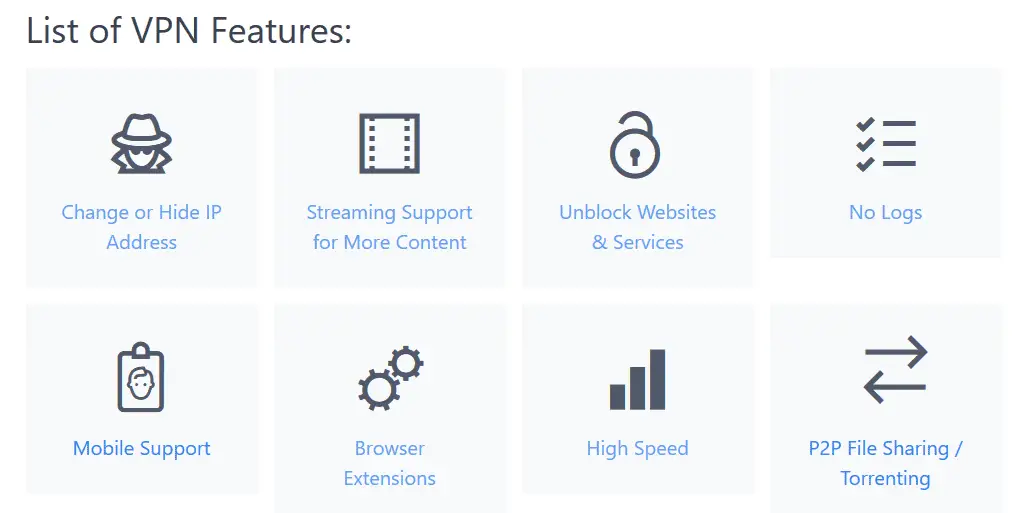You may have heard these two terms i.e., a VPN and a proxy network. Some people even consider them the same but they are not the same. There are a few differences and similarities between both technologies which set them apart. A VPN is basically dedicated software that gives you online privacy and anonymity by creating a private network from a public internet connection. If you download Surfshark VPN now you will understand more clearly. On the other hand, a proxy is basically a program that helps us access the internet through another server. Proxy networks use their own servers to provide you with a secured connection to the web.
Sounds much similar right? No! Actually, there is a difference between proxy servers and VPN servers. In this article, we will learn how a VPN differs from a proxy network. If you are interested in learning all this, keep on reading!
Differences Between a VPN and a Proxy Network
VPNs are always used when you want to access the web privately. This means, your traffic will be encrypted so no one else can see what you’re doing online. This is vital especially if you are using public Wi-Fi hotspots which sometimes leak data. You never know who might be listening and checking up on you.
When it comes to private browsing, VPNs are the perfect tool for you. Also using VPN you can bypass Geo-restrictions, Unblock popular streaming or Torrent anonymous. They usually offer unlimited bandwidth and paid VPNs allow more than 1 device to log in and browse privately so you don’t have to worry about limited resources. The only downside is VPN Slows Down Your Connection Speeds and increases Data consumption.
Proxies work like VPNs except for the fact that proxies usually aren’t secure. Also, they have fixed IP addresses. So when someone does monitor the proxy packets, they won’t be able to find out anything because all connections to the proxy server will appear to come from the same IP address. A good example is when you use a Chrome browser extension called HTTPS Everywhere.
This extension tells Google Chrome how websites should be accessed over an HTTPS protocol which allows you to remain more anonymous while surfing the web. When visiting sites that require HTTPS protocols (which most do) like Facebook, Gmail, etc., you’ll have to enter a certificate which makes you look very suspicious if anyone was to check up on you via a proxy.
Proxy Networks Vs. VPNs: Which One Is Better For Your Needs?
If you’re looking for a free/paid VPN service provider, then you can choose either the paid option or the free version of its service. It’s important to note though that VPN services are often expensive compared to the price of just renting a proxy. Another consideration is the amount of security offered by each company.
If you opt for a proxy network, then you get a lot of benefits. But if you decide to go with a VPN, then you’ll receive better speeds and security. Proxies are often used by organizations to track the activities of their employees and know what everyone is doing during office hours (mostly).
Proxies can also impose restrictions on the desired sites such as your office may restrict watching NetFlix or Amazon Prime in the office. The worst thing is that, if you are connected to your department’s internet through ethernet cable you won’t be able to activate a VPN too.
The bottom line is that neither is perfect and you need to make sure you’re choosing the best VPN options for yourself. Before signing up for a VPN, you should first consider its pricing structure. Remember that most VPN providers charge monthly fees and not one-time fees.
Proxy server
- Masks IP address
- Bypass Geo-location restrictions
- Usually available for Free
- Can be used for large-scale networks
- Hides IP address but does not secure data or hide web traffic
- Only works on a single application at a time
- Public proxy servers may be slow, unreliable, or unsafe.
VPN server
- Masks IP address
- Bypass Geo-location restrictions
- Added security through data encryption
- Covers all network traffic
- Provides a secure way to access a business network remotely.
- Usually requires a paid subscription (To realize benefits)
- May drain computer resources
- Typically not as scalable as proxies.
For those of you who don’t know the difference between a virtual private network and a proxy network yet, here are some things you should know before opting for a VPN provider over a proxy network.
Last Minute Thoughts
Most importantly, a VPN network is a software solution whereas a proxy is a physical setup. A VPN masks your true Identity from everyone while connected to the internet. While on the other hand if you are connected to a proxy network your provider will be able to monitor your activities.
That said, both VPNs and proxies allow users to surf online anonymously. But there are some restrictions when it comes to proxy networks.
Overall VPN is better as it provides privacy and security by routing your traffic through a secure VPN server and encrypting your traffic. A proxy simply passes your traffic through a mediating server but doesn’t necessarily offer any extra protection.
- Solved: Proxy server is not responding in Windows 10, 8.1 and 7
- 3 Different ways to disable proxy settings in windows 10
- Windows 10 can’t detect Network proxy Settings? Here 5 working solutions
- Antivirus vs VPN, Do You Really Need Both of these protection services?
- Webcam is being used by another application windows 10 (5 solutions to apply)

